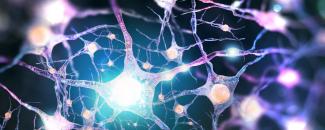The research programs are centered on the brain function and dysfunctions, especially for the treatment of epilepsy and major brain diseases, and to better understand the neural bases of human behaviours.
Institute for Systems Neurosciences (INS)
The multidisciplinary research program aims at understanding the complex dynamics of the brain function and dysfunctions. The approach integrates experimental, theoretical and clinical research.
The institute uses state-of-the-art brain imaging equipment (MEG brain imaging, transcranial magnetic stimulation SMT-EEG with brain navigation system, electrophysiology laboratories), and houses a treatment unit for epileptic patients and a platform The Virtual Brain.
- Institute for Systems Neurosciences (INS)
- Presentation and location of the research unit (INS) - Manager: Viktor JIRSA
Institute of Neurophysiopathology (INP)
The INP is a centre of excellence for training and research, which combines fundamental and translational research, especially in cell therapy.
The studies focus on the interaction between neural cells, their roles in the plasticity of neural networks, on biological clocks and cognitive function.
As well as on the molecular and cellular bases of the main brain diseases (Alzheimer's disease, multiple sclerosis, neuro-inflammatory and neurodegenerative processes, glioblastoma, tumorigenesis, angiogenesis, alterations of the blood-brain barrier).
- Institute of Neurophysiopathology (INP)
- Presentation and location of the research unit (INP) - Manager: Michel KHRESTCHATISKY
Timone Institute of Neurosciences (INT)
The teams develop high-level research in fundamental neurosciences, combining a fundamental and clinical integrative approach: from neuron to behaviour.
More specifically, their work aims at understanding the neural bases of behaviours (perception, emotions, corticospinal control, motivation, social cognition, etc.), and their disorganization in the case of neurological and psychiatric diseases (spinal cord injuries, addictions, Parkinson's disease, autism, bipolar disorders, schizophrenia, post-traumatic stress, depression).
- Timone Neuroscience Institute (INT)
- Presentation and setting up of the research unit (INT) - Manager: Guillaume MASSON

